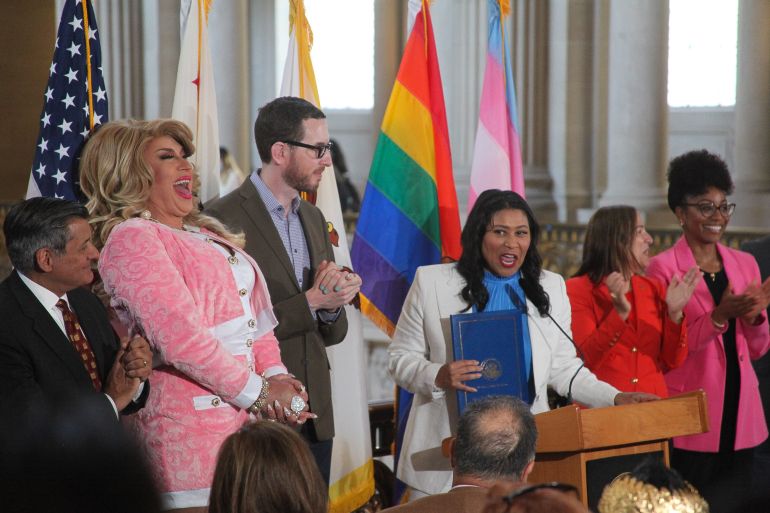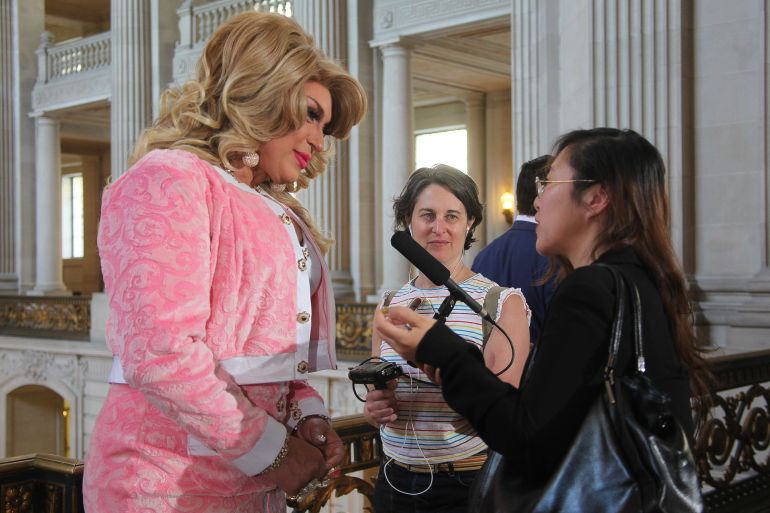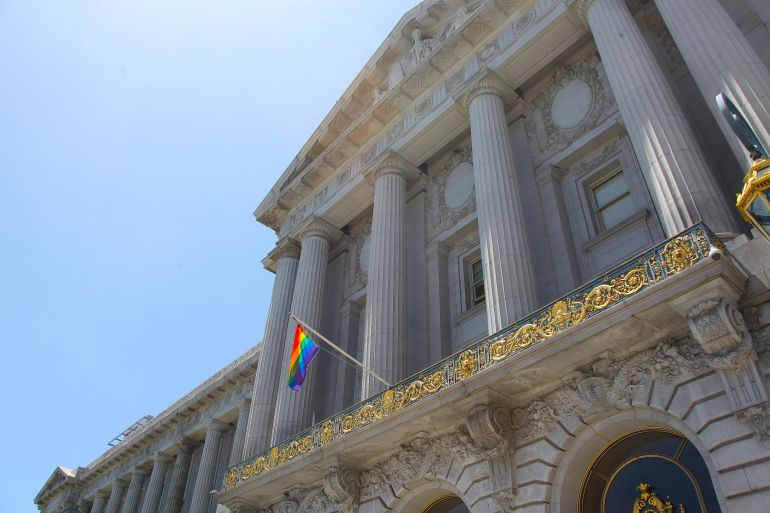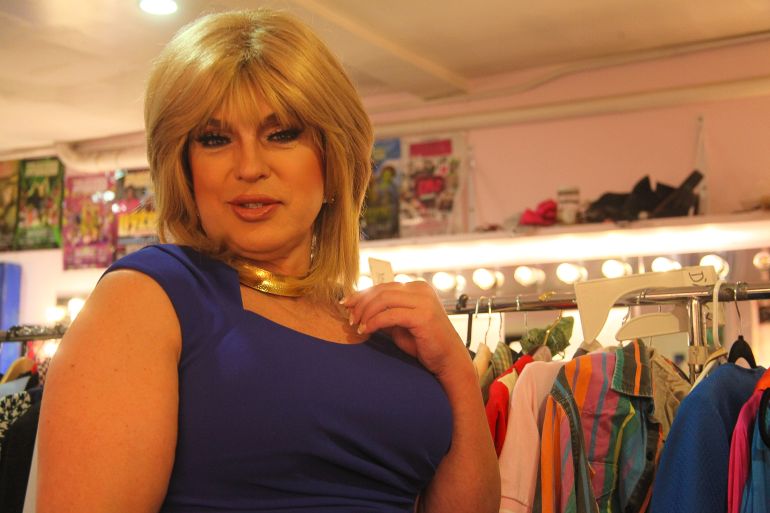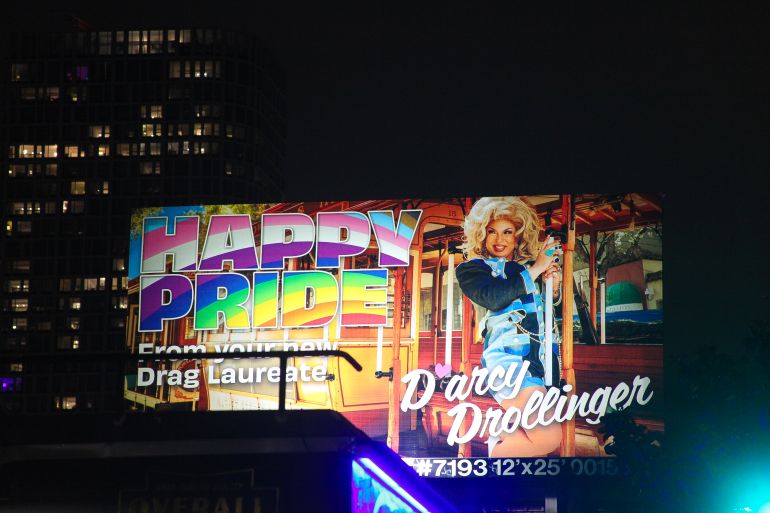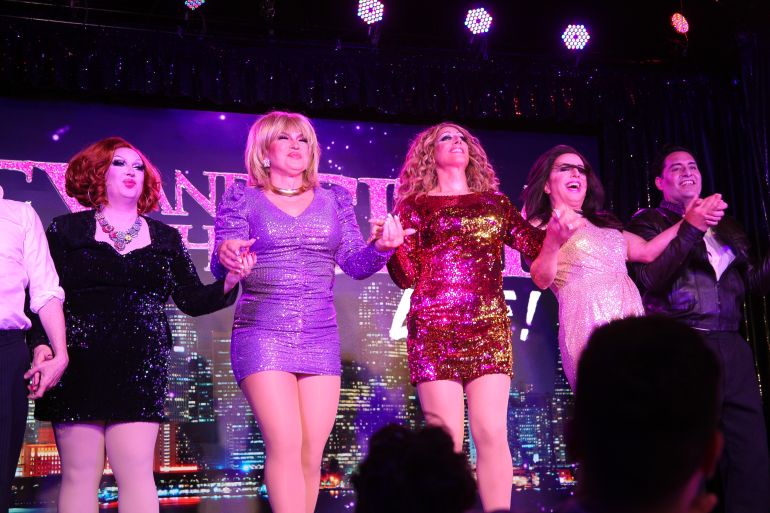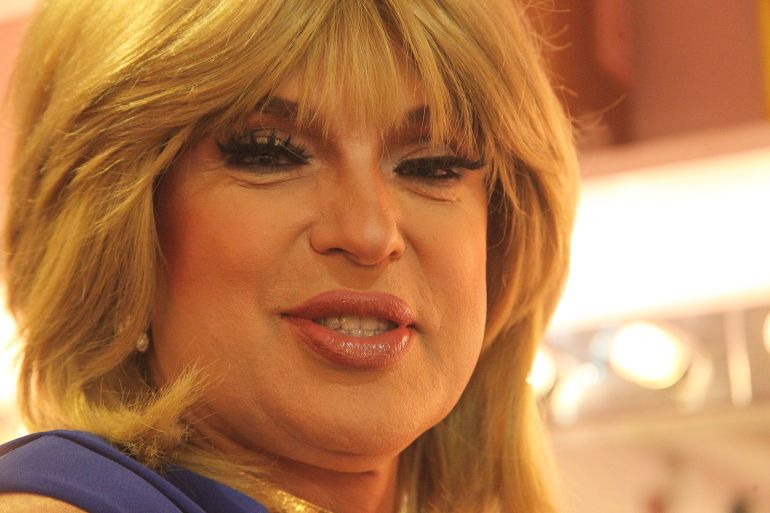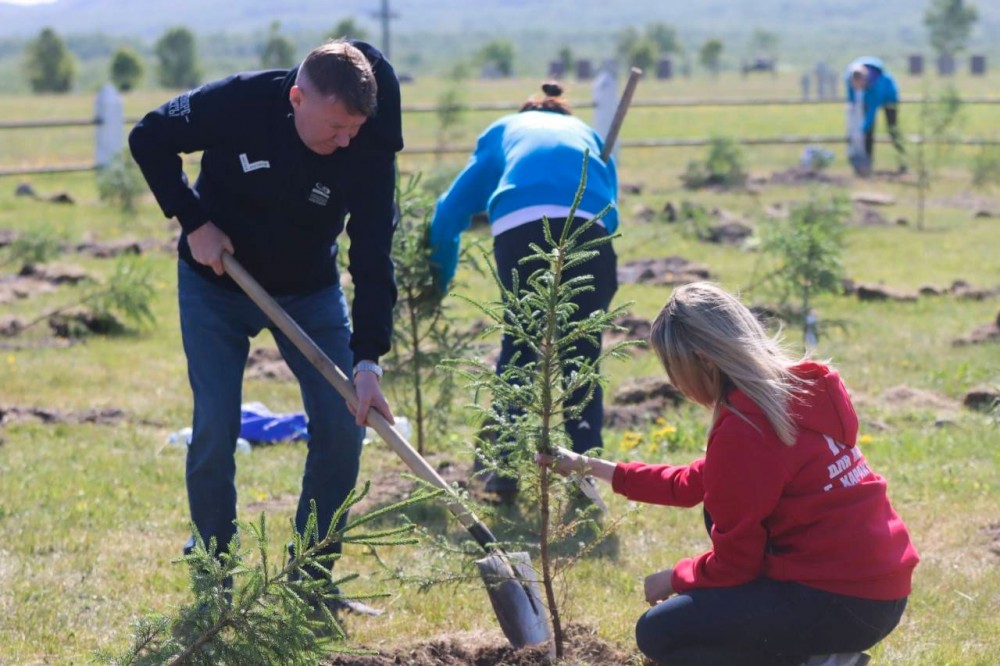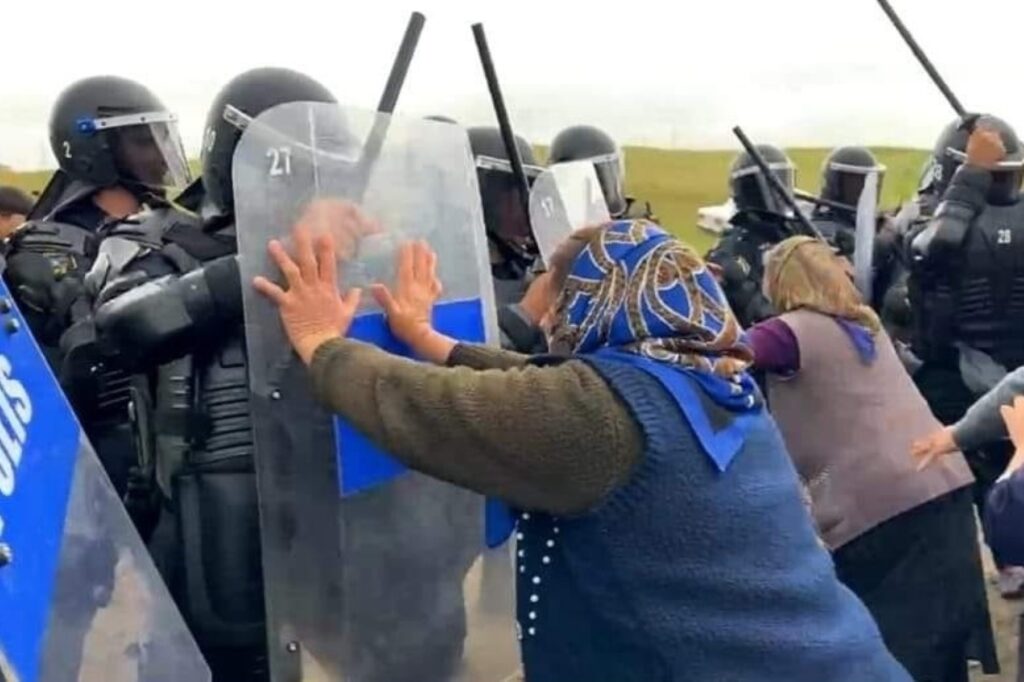
By ASSOCIATED PRESS |
PUBLISHED: June 25, 2023
By BOBBY CAINA CALVAN (Associated Press)
NEW YORK (AP) — Thousands of effusive marchers danced to club music in New York City streets Sunday as bubbles and confetti rained down, and fellow revelers from Toronto to San Francisco cheered through Pride Month’s grand crescendo.
New York’s boisterous throng strolled and danced down Fifth Avenue to Greenwich Village, cheering and waving rainbow flags to commemorate the 1969 Stonewall uprising, where a police raid on a gay bar triggered days of protests and launched the modern movement for LGBTQ+ rights.
While some people whooped it up in celebration, many were mindful of the growing conservative countermovement, including new laws banning gender-affirming care for transgender children.
“I’m trying not to be very heavily political, but when it does target my community, I get very, very annoyed and very hurt,” said Ve Cinder, a 22-year-old transgender woman who traveled from Pennsylvania to take part in the country’s largest Pride event.
“I’m just, like, scared for my future and for my trans siblings. I’m frightened of how this country has looked at human rights, basic human rights,” she said. “It’s crazy.”
Parades in New York, Chicago and San Francisco are among events that roughly 400 Pride organizations across the U.S. are holding this year, with many focused specifically on the rights of transgender people.
One of the grand marshals of New York City’s parade is nonbinary activist AC Dumlao, chief of staff for Athlete Ally, a group that advocates on behalf of LGBTQ+ athletes.
“Uplifting the trans community has always been at the core of our events and programming,” said Dan Dimant, a spokesperson for NYC Pride.
San Francisco Pride, another of the largest and best known LGBTQ+ celebrations in the United States, drew tens of thousands of spectators to the city Sunday.
The event, kicked off by the group Dykes on Bikes, featured dozens of colorful floats, some carrying strong messages against the wave of anti-transgender legislation in statehouses across the country.
Organizers told the San Francisco Chronicle that this year’s theme emphasized activism. The parade included the nation’s first drag laureate, D’Arcy Drollinger.
“When we walk through the world more authentic and more fabulous, we inspire everyone,” Drollinger said at a breakfast before the parade.
Along Market Street, House Speaker Emerita Nancy Pelosi and Rep. Adam Schiff of Burbank were spotted riding together.
In Chicago, a brief downpour at the beginning of the parade didn’t deter parade goers, who took shelter under awnings, trees and umbrellas.
“A little rain can’t stop us!” tweeted Brandon Johnson, the city’s newly elected mayor.
Chicago’s 52nd annual celebration on Sunday featured drag performers Marilyn Doll Traid and Selena Peres, as well as the Bud Billiken dancers, who drew loud praise from the crowd as they represented the celebration of Black roots in Chicago’s South Side.
“It’s very important to have a Chicago Pride parade,” Traid said. “And those that wanna go against us, you have to realize that we all stand together.”
Thousands of people also flooded the streets Saturday night in Houston to celebrate pride parades and embrace the LGBTQ+ community.
“Houston is one big diverse family. Today is about celebrating people who are themselves, their authentic selves and letting everyone know that this is a city full of love, not division, not hate,” said Houston Mayor Sylvester Turner.
San Antonio also celebrated its Pride parade Saturday night, with hundreds of people lining downtown streets.
“This year’s theme is ‘Just Say Gay.’ We feel so strongly about the legislation that’s occurring, not only here in Texas, but in other states throughout the United States that are trying to put us back in the closet,” Phillip Barcena, Pride San Antonio president, told KSAT.
Also Saturday, first lady Jill Biden made an appearance at the Pride parade in Nashville, Tennessee, where she told the crowd “loud and clear that you belong, that you are beautiful, that you are loved.”
Many other cities held their marquee events earlier this month, including Boston, which hosted its first parade after a three-year hiatus that began with COVID-19 but extended through 2022 because the organization that used to run it dissolved under criticism that it excluded racial minorities and transgender people.
A key message this year has been for LGBTQ+ communities to unite against dozens, if not hundreds, of legislative bills now under consideration in statehouses across the country.
Lawmakers in 20 states have moved to ban gender-affirming care for children, and at least seven more are considering doing the same, adding increased urgency for the transgender community, its advocates say.
“We are under threat,” Pride event organizers in New York, San Francisco and San Diego said in a statement joined by about 50 other Pride organizations nationwide. “The diverse dangers we are facing as an LGBTQ community and Pride organizers, while differing in nature and intensity, share a common trait: they seek to undermine our love, our identity, our freedom, our safety, and our lives.”
Earlier Sunday, New York Gov. Kathy Hochul signed a bill that would make the state a “safe haven” for transgender youth and forbid law enforcement agencies from providing information that could undermine the ability for a child to get gender-affirming care.
NYC Mayor Adams made a similar move this week, issuing an executive order preventing city resources from being used to cooperate with out-of-state authorities in detaining anyone receiving gender-affirming care in the city.
The Anti-Defamation League and GLAAD, a national LGBTQ+ organization, reported 101 anti-LGBTQ+ incidents in the first three weeks of this month, about twice as many as in the full month of June last year.
Sarah Moore, who analyzes extremism for the two civil rights groups, said many of the incidents coincided with Pride events.
Nevertheless, Roz Gould Keith, who has a transgender son, is heartened by the increased visibility of transgender people at marches and celebrations across the country.
“Ten years ago, when my son asked to go to Motor City Pride, there was nothing for the trans community,” said Keith, founder and executive director of Stand with Trans, a group formed to support and empower young transgender people and their families.
This year, she said, the event was “jam-packed” with transgender people.
___
AP writers Juan Lozano in Houston; Erin Hooley in Chicago; Trân Nguyễn in Sacramento, California; James Pollard in Columbia, South Carolina; Geoff Mulvihill in Cherry Hill, New Jersey; Trisha Ahmed in St. Paul, Minnesota, and Susan Haigh in Hartford, Connecticut, contributed to this report.





 Nancy Pelosi waves to the crowd during the 53rd Annual San Francisco Pride Parade and Celebration in San Francisco on Sunday, June 25, 2023. - JOSE CARLOS FAJARDO/Bay Area News Group/TNS
Nancy Pelosi waves to the crowd during the 53rd Annual San Francisco Pride Parade and Celebration in San Francisco on Sunday, June 25, 2023. - JOSE CARLOS FAJARDO/Bay Area News Group/TNS


 Members of Dykes on Bikes participate during the 53rd Annual San Francisco Pride Parade and Celebration in San Francisco on Sunday, June 25, 2023. - JOSE CARLOS FAJARDO/Bay Area News Group/TNS
Members of Dykes on Bikes participate during the 53rd Annual San Francisco Pride Parade and Celebration in San Francisco on Sunday, June 25, 2023. - JOSE CARLOS FAJARDO/Bay Area News Group/TNS Visitors hold signs cheering on parade participants during the 53rd Annual San Francisco Pride Parade and Celebration in San Francisco on Sunday, June 25, 2023. - JOSE CARLOS FAJARDO/Bay Area News Group/TNS
Visitors hold signs cheering on parade participants during the 53rd Annual San Francisco Pride Parade and Celebration in San Francisco on Sunday, June 25, 2023. - JOSE CARLOS FAJARDO/Bay Area News Group/TNS
 A parade participant marches during the 53rd Annual San Francisco Pride Parade and Celebration in San Francisco on Sunday, June 25, 2023. - JOSE CARLOS FAJARDO/Bay Area News Group/TNS
A parade participant marches during the 53rd Annual San Francisco Pride Parade and Celebration in San Francisco on Sunday, June 25, 2023. - JOSE CARLOS FAJARDO/Bay Area News Group/TNS
